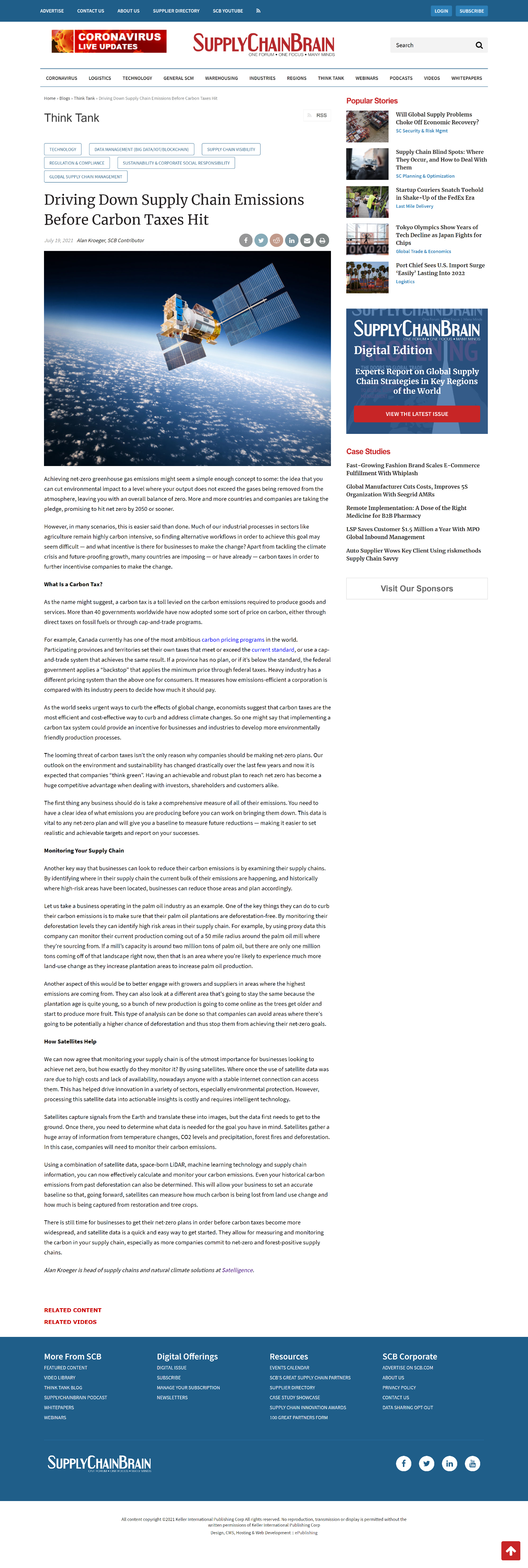Achieving net-zero greenhouse gas emissions might seem a simple enough concept to some: the idea that you can cut environmental impact to a level where your output does not exceed the gases being removed from the atmosphere, leaving you with an overall balance of zero. More and more countries and companies are taking the pledge, promising to hit net zero by 2050 or sooner.
However, in many scenarios, this is easier said than done. Much of our industrial processes in sectors like agriculture remain highly carbon intensive, so finding alternative workflows in order to achieve this goal may seem difficult — and what incentive is there for businesses to make the change? Apart from tackling the climate crisis and future-proofing growth, many countries are imposing — or have already — carbon taxes in order to further incentivise companies to make the change.
Our Head of Supply Chains and Climate Solutions Alan Kroeger explains to Supply Chain Brain what carbon taxes are and why economists suggest that carbon taxes are the most efficient and cost-effective way to curb and address climate changes.

